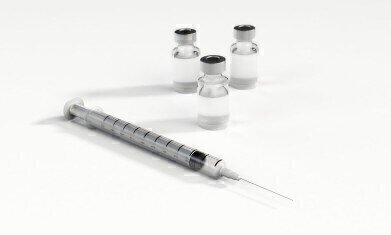Laboratory Products
Antibiotics: How Metals Can Help
Mar 16 2020
New research from the University of Queensland suggests that metal-rich compounds could be the key to creating a new generation of antibiotics designed to combat the global rise in resistance. Working with a team of international researchers, the team discovered 23 new compounds containing metals such as silver, zinc, manganese, iridium and ruthenium. All are known for their antibacterial and antifungal properties, which could be harnessed to combat antibiotic resistance.
Compounds attack bacteria cells, ignore human cells
Dr Mark Blaskovich, Dr Angelo Frei and Dr Johannes Zuegg led the study, which was conducted at the university's Centre for Superbug Solutions at the Institute for Molecular Bioscience. They found that many of the metal compounds actively attack and kill bacteria cells, including Staphylococcus aureus (MRSA), a potentially deadly group of Gram-positive bacteria that have developed resistance to methicillin. While the metal compounds kill bacteria, they don't attack human cells which makes them hugely appealing for the development of antibiotics.
"This is promising research because the scientific community is struggling to keep up with the pace of bacterial resistance," says Dr Blaskovich. "There are around 40 new antibiotics in clinical trials, which sounds encouraging until you compare this to the more than 1000 medicines and vaccines in clinical trials for cancer treatments," he adds.
Scientists attempt to "outwit bacterial resistance"
Around 75% of new antimicrobial medicines are derived from existing antibiotics, which makes them vulnerable to bacterial resistance. "Finding completely new types of antibiotics in these metal-containing compounds offers promise to outwit bacterial resistance, because they likely use different mechanisms which the bacteria have not encountered previously," explains Dr Frei. "In addition to activity against MRSA, some compounds were active against dangerous Gram-negative pathogens such as Escherichia coli and Acinetobacter baumannii, which have even fewer novel antibiotic treatments."
Team hope to stimulate antimicrobial research
The team hope the findings will spark new interest and investment in antimicrobial research, which many pharmaceutical companies are avoiding as there is little profit to be made. "Many pharmaceutical companies are bowing out of antibiotic research as there is little return on investment," says Dr Frei. "So it is vital to raise awareness that metal complexes are a prospective source of truly novel antibiotics with potential for combatting antimicrobial resistance."
While scientists spearhead experiments, laboratory equipment plays a critical role in supporting cutting-edge research. Spotlighting several popular models, 'Comparing the energy and temperature performance of laboratory fridges' compares units from Liebherr, Biocold and Lec.
Digital Edition
Lab Asia 31.2 April 2024
April 2024
In This Edition Chromatography Articles - Approaches to troubleshooting an SPE method for the analysis of oligonucleotides (pt i) - High-precision liquid flow processes demand full fluidic c...
View all digital editions
Events
Apr 25 2024 Istanbul, Turkey
Apr 28 2024 Montreal, Quebec, Canada
May 05 2024 Seville, Spain
InformEx Zone at CPhl North America
May 07 2024 Pennsylvania, PA, USA
May 14 2024 Oklahoma City, OK, USA


.jpg)















